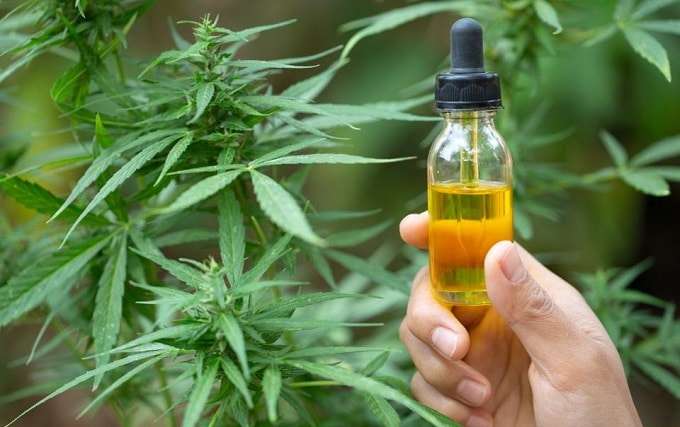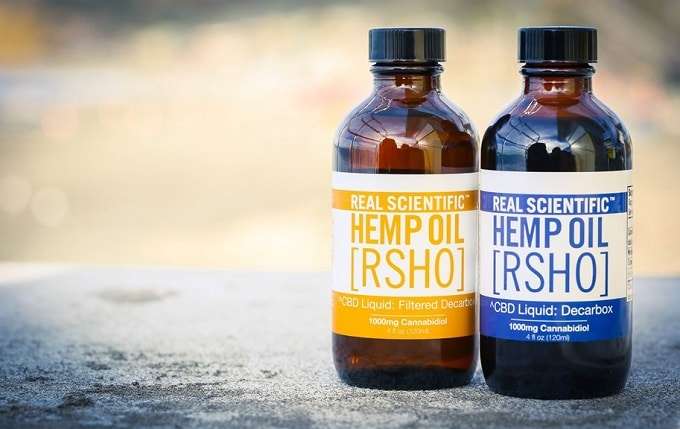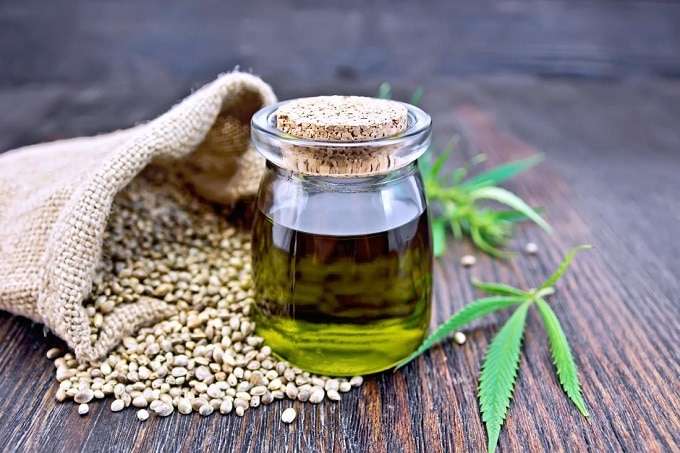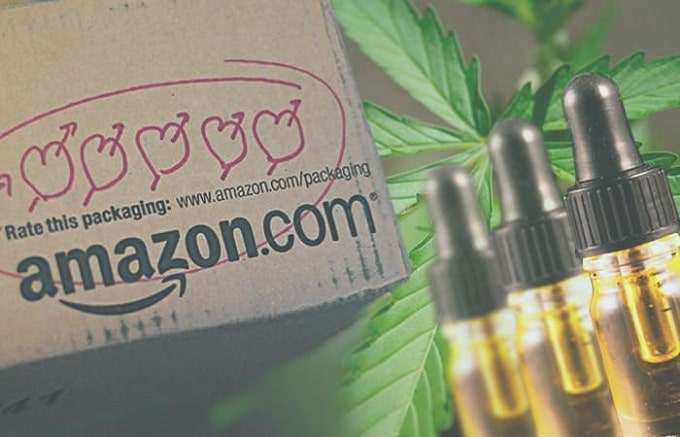Odds are that you’ve experienced the following scenario…
You go to the store to buy 2% milk, but in your rushed state, you accidentally get skim.
By the time you arrive home and realize your mistake, you find that – to your dismay – you’ll be spending the next week pouring white water on your cereal.
Pretty inconvenient, but not that serious.
Unfortunately, people often make similar mistakes with more expensive products, like CBD hemp oils.
There are an infinite numbers of CBD products out there, but only a finite number of categories – three, to be exact.
They all come from the same plant (cannabis), but aside from their shared heritage, they’re not the same at all.
If you’re new to the CBD world, it’s important to understand the difference between CBD marijuana oil, CBD hemp oil, and hempseed oil – for the sake of your health and your wallet.
CBD Marijuana Oil

CBD marijuana oil is the hardest to find.
Derived from “marijuana” (we prefer the more accurate name, “cannabis,” due to the negative connotations of “marijuana”), this substance is still illegal in most states.
Unless you live in places like Colorado or Washington, you won’t find this product without a medical marijuana prescription.
The main reason why this oil is a controlled substance is that it contains higher levels of the psychoactive cannabinoid, THC.
Like any therapeutic product, medical-grade variations are the most effective, and CBD oil is no exception.
This is due to the entourage effect.
Simply put, this mechanism indicates that you need a combination of CBD and THC to gain the full benefits of cannabis.
Unlike other CBD creations out there (CBD hemp oil), there’s no limit to the amount of THC you can get in CBD oil derived from marijuana.
The cannabis plants this CBD oil is sourced from are purposefully bred to have higher levels of THC.
Uses of CBD Marijuana Oil
CBD oil is thought to have a lot of applications.
Patients use it to relieve pain, anxiety, inflammation and nausea, to name a few.
In some cases, it’s been shown to be effective with controlling severe epilepsy.
CBD Hemp Oil

The biggest pitfall when buying CBD oil is that people often confuse the legally controlled product above with CBD derived from hemp.
Aside from purchasing availability, there are three fundamental differences.
As we said earlier, CBD marijuana oil can have as much THC as needed or requested.
But in order to stay within the bounds of the law, CBD hemp oil producers limit their CBD sources to industrial hemp.
Unlike marijuana, which contains both the psychoactive cannabinoid, THC and the non-psychoactive cannabinoid, CBD, hemp only has trace amounts of THC.
If the THC level is no more than 0.3%, producers can market it as a supplement, rather than a recreational or therapeutic drug.
Consequently, you can easily obtain CBD hemp oil in all 50 states. The second major difference is effectiveness.
While there’s plenty of anecdotal evidence to support CBD hemp oil as being helpful for a variety of problems, research is sparse.
Studies that do look into CBD typically use CBD marijuana oil or synthetically lab manufactured CBD, not hemp.
This doesn’t mean that CBD hemp oil is ineffective, it just means it may lack some of the qualities attributed to containing a higher amount of THC.
Further research is needed to confirm the differences in effectiveness of CBD marijuana oil vs CBD hemp oil.
Over time, we may find out that each oil has its own unique, optimal applications.
This brings us to our third difference that a lot of users – medical or otherwise – find appealing about CBD hemp oil.
Specifically, the low THC content means that there won’t be any kind of psychoactive effect.
Simply put, you won’t get “high” using it. This is a huge advantage for people who want relief, but also need to function in their daily lives.
In short, it’s certainly possible (especially considering the thousands of online testimonies) that CBD hemp oil could be very effective against a variety of health issues.
Uses of CBD Hemp Oil
People use CBD hemp oil for the same purposes as CBD marijuana oil.
Many consumers swear by CBD hemp oil’s analgesic, anti-inflammatory and mood stabilization benefits.
It may have similar effectiveness for epilepsy, as indicated by the story of Meghan Vaughan.
But it’s important not to say anything definitive until we can say it with certainty.
Both CBD hemp oil and CBD marijuana oil come in a variety of forms, including concentrates, capsules, topical creams, and e-liquids for vaporizers. There are even hemp oil products for pets.
Hempseed Oil

Here’s where things get tricky – and where people make a fundamental mistake.
Like CBD hemp oil, hempseed oil (also called hemp oil) comes from the same plant.
But that’s basically where their similarities end. Unlike its two counterparts, hempseed oil has absolutely nothing to do with CBD.
So it’s basically useless if you’re looking for the benefits associated with cannabidiol (CBD).
While CBD marijuana oil and CBD hemp oil are made from the whole cannabis plant (flowers, stalks, leaves, and seeds), hempseed oil is created from only the hemp seeds (hence the name).
The production process is also radically different.
Unlike CBD hemp oil, which usually uses a complicated CO2 extraction method, hempseed oil is cold-pressed and mechanically separated.
Uses of Hempseed Oil
Hempseed oil’s purpose is strictly nutritional.
It contains a variety of beneficial nutrients, including omega fatty acids, fiber, protein and vitamin E.
Since hempseed oil is used for its dietary advantages, people mix it into different foods and condiments.
Some examples include cooking oil, dips, sauces or additives for protein shakes.
Buying CBD Oil on Amazon
Discover: Buy CBD Oil on Amazon
Amazon.com is a household name among online shoppers, going toe-to-toe with fellow giants like eBay and Jet.
That being said, it’s not hard to believe that Amazon is an easy one-stop-shop for all your CBD oil needs (minus the legally controlled variety), but therein lies the problem.
In some cases, hemp oil that’s intended for use as a supplement (CBD hemp oil), not a food, is still suspended in a carrier of hempseed oil.
But unlike pure hempseed oil, the mixture is still designed for the delivery of CBD.
Unfortunately, this gray area can lead to mislabeling and, in turn, confusion for would-be buyers.
Most retailers simply assume that you know the difference between CBD hemp oil and hempseed oil.
The descriptions could be deceptively similar or confusing — it seems even the sellers might not always know the difference.
This product is labeled as “hemp oil.”
By now, we’ve clearly established that CBD hemp oil generally refers to CBD-rich products used to relieve a variety of symptoms.
But the label and description are dead giveaways. Specifically, look at the words “Whole Food, high fiber, and gluten free.”
CBD hemp oil isn’t a food (although of course it is ingested). On the other hand, the product shown here is an example of actual CBD hemp oil.
A clear indicator can be found in the product description at the bottom of the page.

According to the seller, the oil is “Derived from industrial hemp and highly purified so all psychoactives like THC are removed using a clean, super-critical CO2 extraction method [emphasis added].”
Another clue is that the oil claims to be good for things like anxiety and pain, with no reference to any kind of nutritional benefits.
Companies who sell CBD hemp oil are not allowed to make medical claims.
While it says nothing about the quality of their product, this company might be playing risky by making claims.
A third thing to look for is the CBD content in the product. CBD hemp oil comes in a variety of strengths.
The example linked above has a CBD concentration of 250 mg.
Hempseed oil contains no CBD so there won’t be a reason to put the CBD content on the label.
Lastly, a good indication that you are looking at a CBD hemp oil product is if it has something along the lines of Supplement Facts on the label.
Remember, CBD hemp oil should look like other vitamins and supplements your purchase, i.e. fish oil, whereas hempseed oil should look like other food products you purchase, i.e. products with Nutrition Facts on the label.
Be Vigilant When Shopping for Your CBD Oil
When you’re buying a product – especially online – it’s important to shop smart.
Finding the right hemp product is just half the battle.
You need to make sure that you’re getting what you pay for, not some cheap imitation made with substandard ingredients.
There are plenty of reviews out there for many CBD oil products or hempseed oils, not to mention the company websites themselves.
Also, it can’t hurt to contact the seller directly with any questions. Stay informed and take your time.
Key Points on the Differences of Cannabis Oils
This article covered the following:
- There are three main types of CBD oil products: CBD marijuana oil, CBD hemp oil, and hempseed oil (also known as hemp oil, it doesn’t contain CBD. We mention hempseed oil to make sure you know the difference from hempseed oil and real CBD hemp oil).
- CBD marijuana oil is derived from marijuana and contains significant amounts of THC, making it a controlled substance which can require a prescription or certification to purchase. At the minimum, access to CBD marijuana oil requires living in an area with some form of marijuana legalization (recreational or medical).
- CBD hemp oil contains little THC (no more than 0.3%) and is therefore considered a supplement. CBD hemp oil usually doesn’t require a prescription or certification except in certain countries like Mexico or Brazil, for example. Cannabis laws vary greatly by location. Learn the laws for where you live before you buy!
- Both CBD marijuana oil and CBD hemp oil are used for the same types of symptoms (although scientific confirmation and research is still ongoing).
- Hempseed oil is a food, used for its nutritional value and consumed accordingly.
- Labels and product descriptions should always contain clues as to whether you’re buying CBD hemp oil or hempseed oil. Unfortunately, intentional deception may be a reality with some products.
- Keywords like food and Nutrition Facts and other nutritional statements are generally indicative of hempseed oil
- Keywords like hemp extract, hemp aerial parts, and Supplement Facts are indicative of CBD hemp oil.
- CBD levels in mgs (i.e. 250mg, 750 mg, etc.), CO2 extraction, and statements about possible pain relief, anxiety, and other conditions are exclusive to CBD hemp oil products.
- Use discretion and common sense when shopping for CBD hemp oil or hempseed oil. Don’t be afraid to ask questions. A good supplier will always answer all of your questions.


